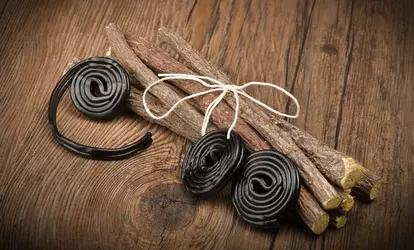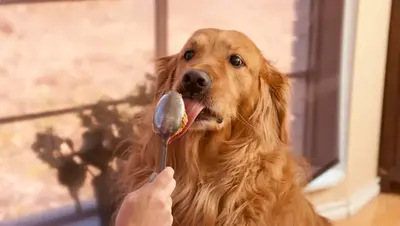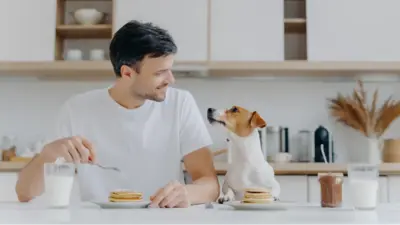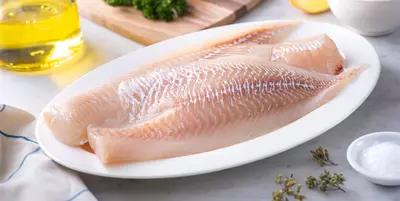Can Dogs Eat Liquorice?
- 28 Oct 2024
- 2m read

From natural liquorice root to sugary liquorice allsorts, there are a few reasons why these treats don’t mix well with dogs. In this article, we’ll dive into everything you need to know about liquorice and dogs, so you can keep your furry friend safe, happy, and wagging with the right kind of treats.
Is Liquorice Bad for Dogs?
Yes, liquorice is bad for dogs.
The main issue with liquorice is a compound called glycyrrhizin, naturally found in liquorice root, which can affect a dog’s blood pressure and potassium levels if eaten in large amounts. This can lead to symptoms like muscle weakness, high blood pressure, and even issues with their heart.
Can Dogs Eat Liquorice Root?
No, dogs should not eat liquorice root.
Liquorice root might seem a bit more “natural” than candy, but it's still not a safe treat for dogs. While some holistic pet care guides mention liquorice root for its anti-inflammatory properties, the root still contains glycyrrhizin, which can disrupt your dog's potassium levels and even raise blood pressure if eaten in large amounts.
So, if you’re considering natural remedies for your pooch, chat with a vet about pup-safe herbs and alternatives instead. There are far safer ways to keep your dog’s tummy happy and healthy without going down the liquorice root path.
Can Dogs Eat Liquorice Allsorts?
No, dogs should not eat liquorice allsorts.
These sweets are loaded with sugar, artificial flavourings, and sometimes even a touch of salt. Sugar isn’t good for dogs and can lead to obesity, dental issues, and even diabetes in the long run. Add in the artificial colours and flavourings, and you’ve got a recipe for potential tummy troubles. And if they contain xylitol, a common sweetener in candies, they can be downright dangerous, as xylitol is toxic to dogs. The best option? Keep these little multi-coloured sweets for the human treat jar, not the doggy one.
What Happens if My Dog Eats Liquorice?
For a small nibble, your dog may just experience some mild stomach upset, like a bit of bloating or a slight tummy ache. But if your pup has gobbled down a significant amount—especially if it’s liquorice with high sugar content or that contains xylitol—you should get in touch with your vet straight away.
Symptoms of a more serious reaction might include vomiting, lethargy, muscle weakness, or even increased thirst and urination.

.webp)


